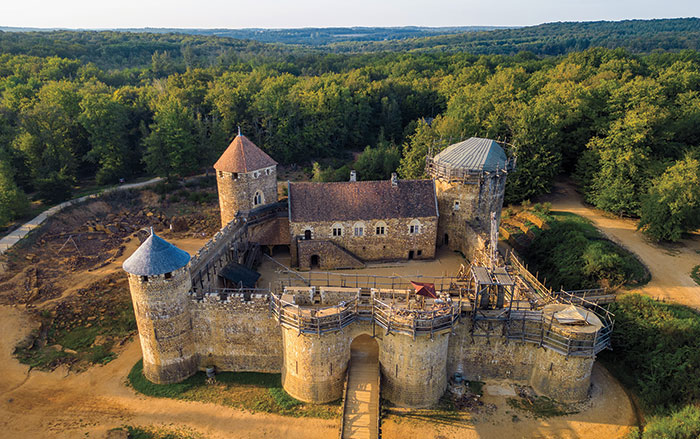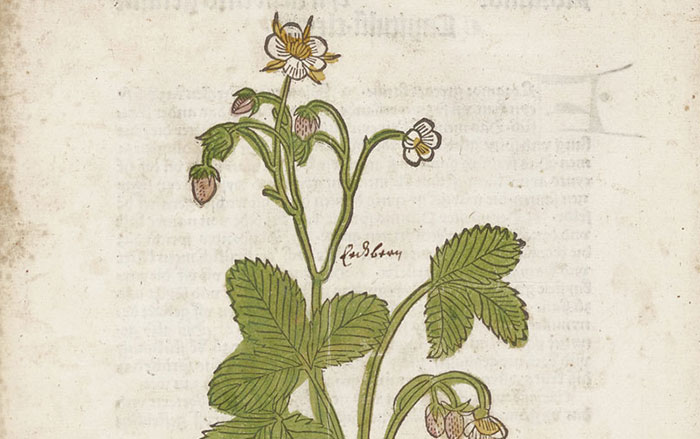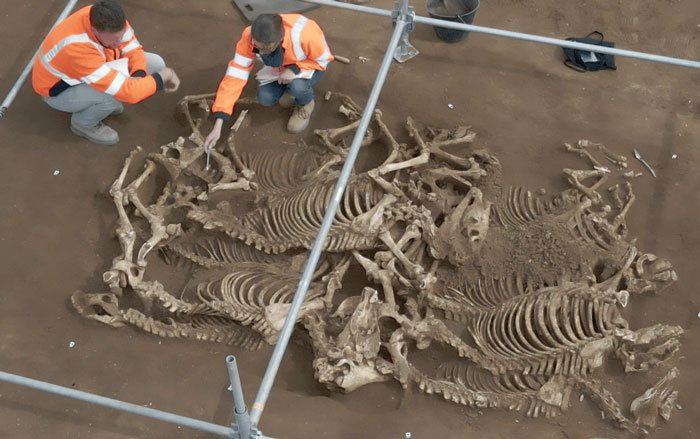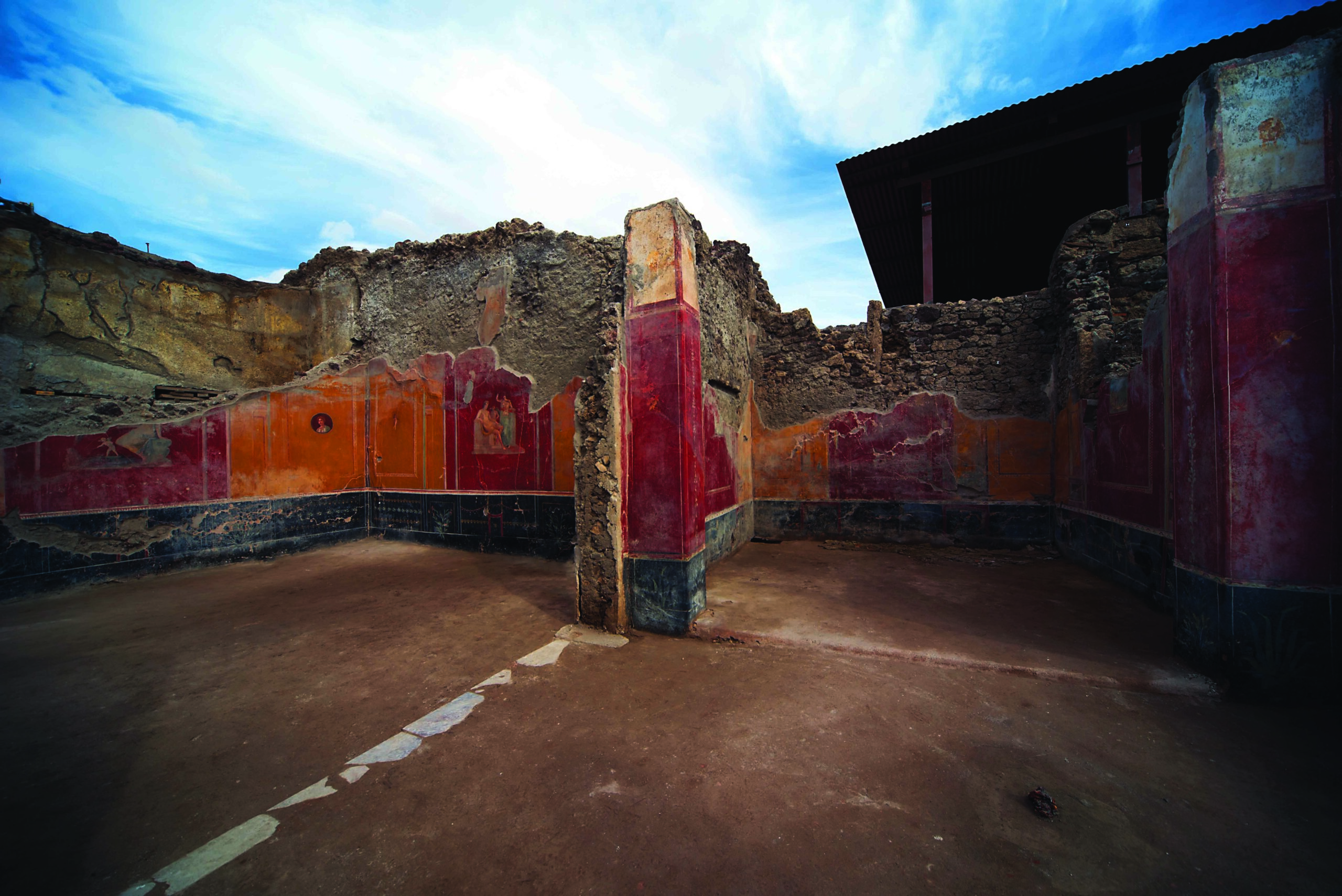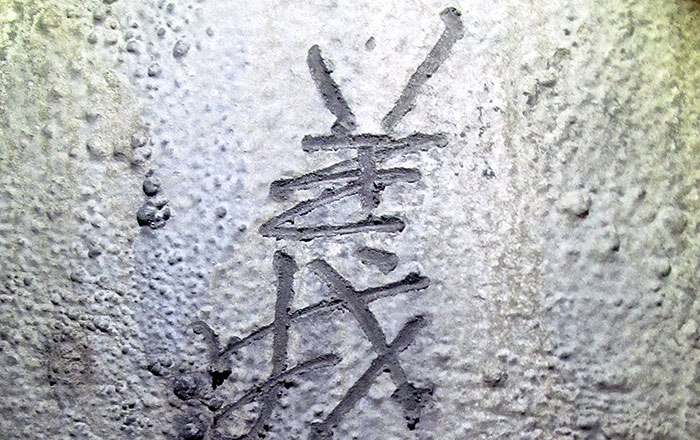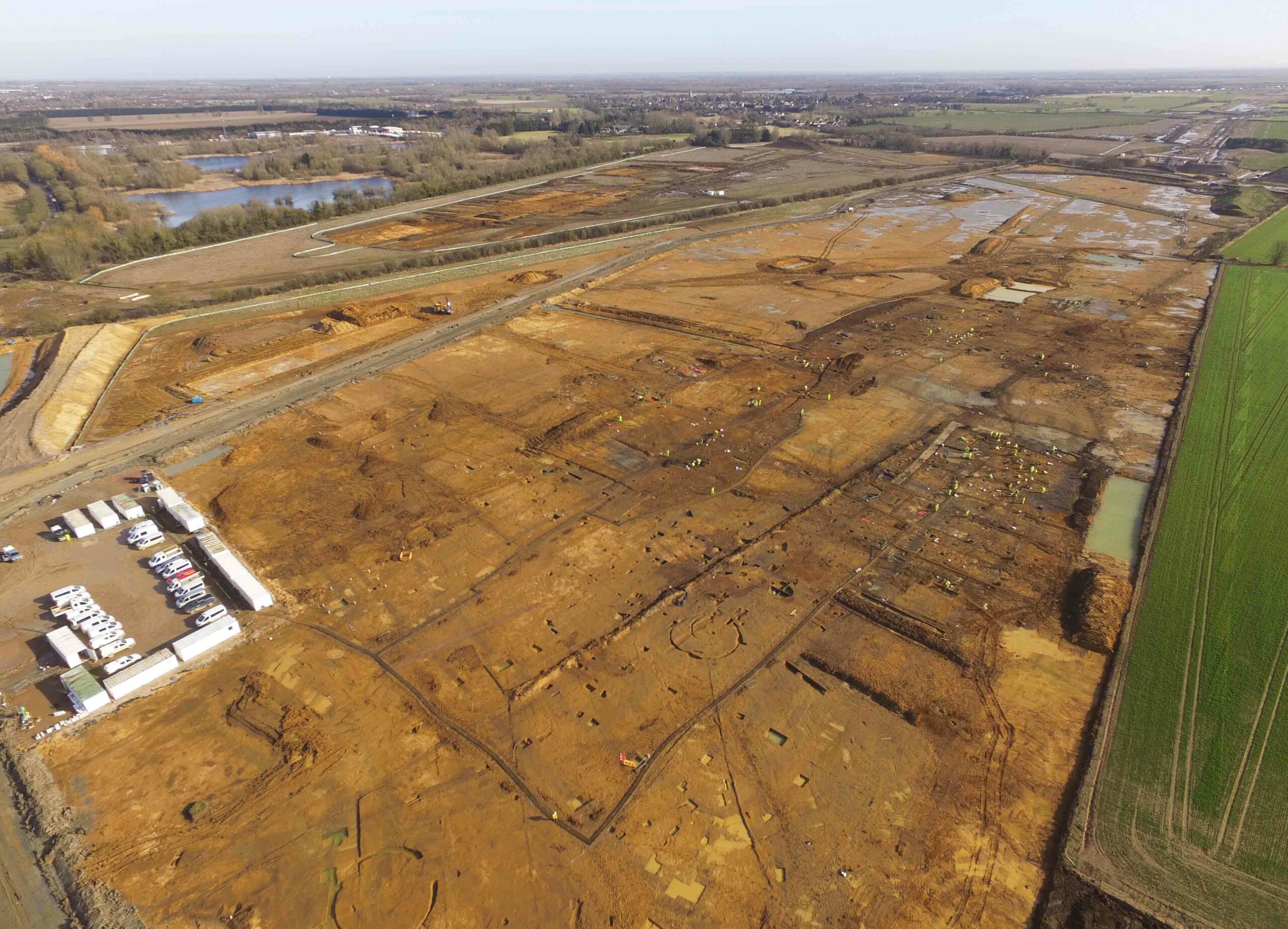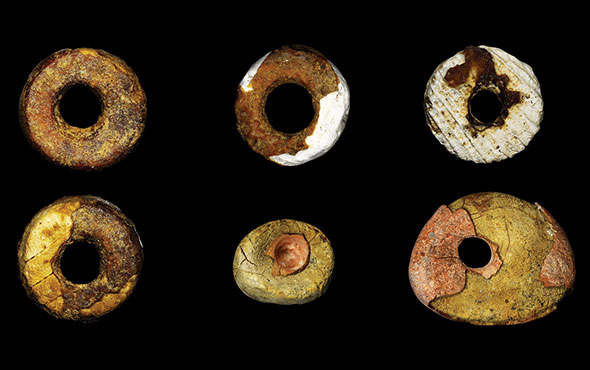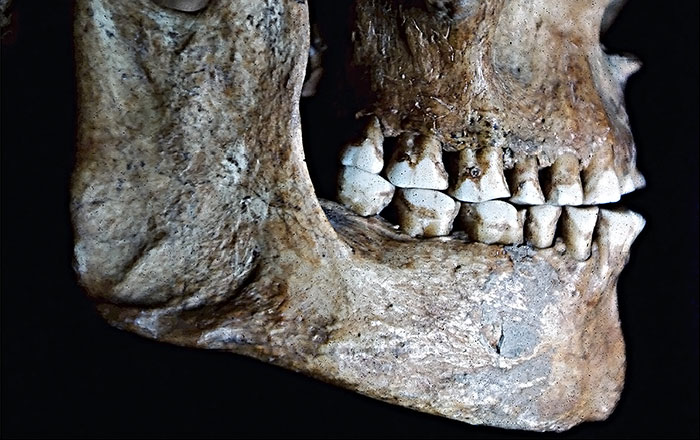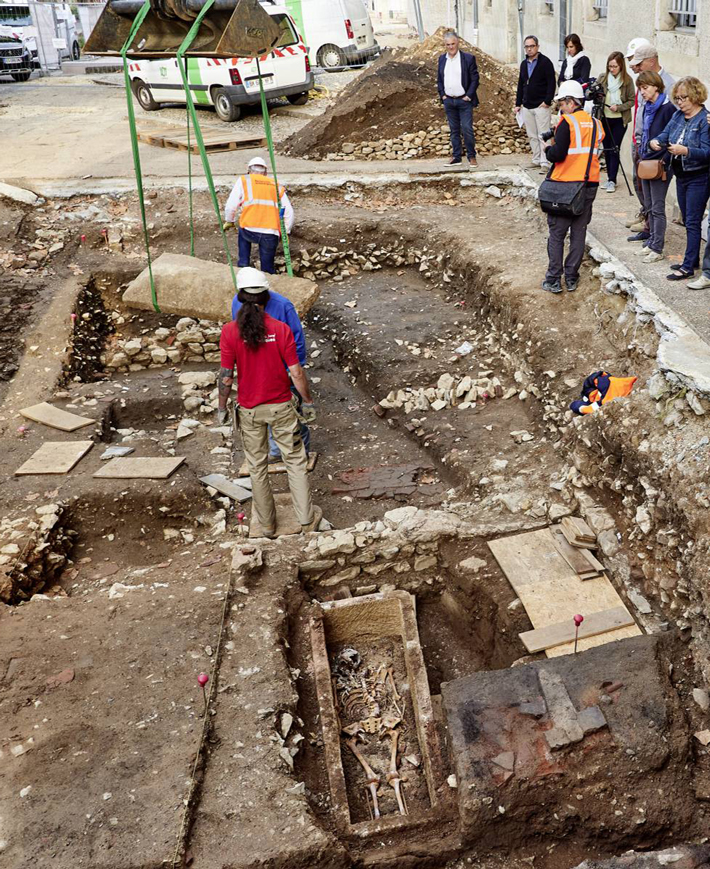
CAHORS, FRANCE—A limestone sarcophagus containing the remains of an elderly woman dating to the seventh century has been unearthed in Cahors, in southwestern France, according to a report from RFI. The discovery was made as part of excavations carried out ahead of a redevelopment project by the archaeological unit of the Department of Lot, in cooperation with specialists from France’s National Institute of Preventive Archaeological Research. The skeleton, which dates to the Merovingian period, bore evidence of osteoarthritis and was buried without grave goods. It was found near St. Bartholomew’s church, in an area believed to be within the confines of a monastery that was founded in the seventh century by the Merovingian royal official Didier of Cahors. In addition to the skeleton, researchers have uncovered Merovingian pottery and what appear to be traces of a kitchen. To read about the discovery of several notable burials in southwestern France dating to the eighth century, go to “Islam North of the Pyrenees.”


